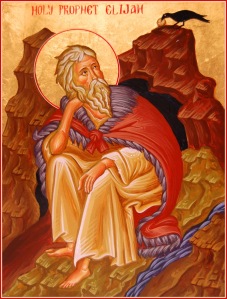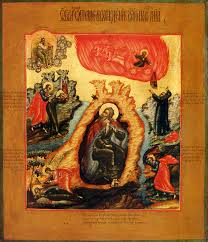Neoliberalism and the Gospel
And Elijah came unto all the people, and said, How long halt ye between two opinions? if the LORD be God, follow him: but if Baal, then follow him. And the people answered him not a word (I Kings 18:21).
It seems to me that for many Christians the Gospel of Neoliberalism has replaced the Gospel of Jesus Christ.
I’ve known that for a long time, and have blogged about it before (here, and here, and here).
But today I was reminded of it again when several people brought various articles on it to my attention:
- Neoliberalism has brought out the worst in us
- Sick of this market-driven world? You should be
- Counterscript
As one of these articles points out, Neoliberalism has brought out the worst in us | Paul Verhaeghe | Comment is free | theguardian.com:
Bullying used to be confined to schools; now it is a common feature of the workplace. This is a typical symptom of the impotent venting their frustration on the weak – in psychology it’s known as displaced aggression. There is a buried sense of fear, ranging from performance anxiety to a broader social fear of the threatening other.
Constant evaluations at work cause a decline in autonomy and a growing dependence on external, often shifting, norms. This results in what the sociologist Richard Sennett has aptly described as the “infantilisation of the workers”.
And this Sick of this market-driven world? You should be | George Monbiot | Comment is free | The Guardian:
Today the dominant narrative is that of market fundamentalism, widely known in Europe as neoliberalism. The story it tells is that the market can resolve almost all social, economic and political problems. The less the state regulates and taxes us, the better off we will be. Public services should be privatised, public spending should be cut, and business should be freed from social control. In countries such as the UK and the US, this story has shaped our norms and values for around 35 years: since Thatcher and Reagan came to power. It is rapidly colonising the rest of the world.
But in some ways this point is the most telling, and raises the question that Elijah put to the Israel of old: Sick of this market-driven world? You should be | George Monbiot | Comment is free | The Guardian:
Neoliberalism draws on the ancient Greek idea that our ethics are innate (and governed by a state of nature it calls the market) and on the Christian idea that humankind is inherently selfish and acquisitive. Rather than seeking to suppress these characteristics, neoliberalism celebrates them: it claims that unrestricted competition, driven by self-interest, leads to innovation and economic growth, enhancing the welfare of all.
When a Christian script was running in many people’s minds (see Counterscript to know what that refers to) Greed was regarded as one of the Seven Deadly Sins, but in the Gospel according to Neoliberalism, it is the supreme virtue.
 And for many Christians, the Neoliberal script has started to drown out the Christian one, and so raises the question of Elijah: How long halt ye between two opinions? if the LORD be God, follow him: but if Baal, then follow him.
And for many Christians, the Neoliberal script has started to drown out the Christian one, and so raises the question of Elijah: How long halt ye between two opinions? if the LORD be God, follow him: but if Baal, then follow him.
“Baal” is a word that means lord or master, and the deity referred to was Melqart, the god of the Phoenician city of Tyre. Melqart was a god of rain and fertility, and hence of material prosperity, and was invoked by Phoenician traders for protection of their commercial enterprises. In other words, the cult of Baal was a prosperity cult, which had lured the people of Israel, and was actively promoted by their Phoenician queen Jezebel, the wife of King Ahab. The people of Israel had the prosperity script playing in their minds.
In our day too, many Christians have the prosperity script playing in their minds.
The post immediately preceding this one, on Neopentecostal churches and their celebrity pastors, points to a phenomenon that Christian missiologists like to refer to as inculturation or contextualisation, which, in a good sense, means making the Christian gospel understandable to people living in a particular culture or context. But in the prosperity gospel preached by some Neopentecostals, the Christian gospel has been swamped by the values of Neoliberalism. One could say that “prosperity theology” is the contextualisation of the Christian gospel in a society dominated by Neoliberal values, but to such an extent that the result is syncretism.
But while the Neopentecostals sometimes do this explicitly, many other Christian groups do it implicitly, and we need to ask ourselves where our values really come from — from the gospel of Jesus Christ, or from the gospel of the Market. Jesus Christ is the love of God incarnate, but the Market, or Melqart, or Mammon, is the love of money incarnate.
When the world urges us to celebrate the virtues of Greed, whether subtly or blatantly, do we resist it? Are we even aware of what is happening? Or do we simply allow that script to play in our heads, telling us “You deserve it”?
Last week a couple of journalists were asking me why Neopentecostal churches that preach a properity gospel, like T.B. Joshua’s Synagogue Church of all Nations, are growing in popularity, and one answer is that given by George Monbiot in the article quoted above — that the values of Neoliberalism, promoted by Reagan and Thatcher, are now colonising the whole world.




I would only note that I don’t think it’s accurate to blame ‘the market’ for the things Paul Verhaeghe describes: workplaces in the state-capitalist ‘socialist’ states of old (and the handful of still existing ones) were hardly happy, egalitarian places. Workers- everyone- were subject to whatever the shifting demands or desires of the state apparatus was, as determined by the ruling elites. At least in the market-based capitalist economy one’s anxieties are limited to a supervisor giving you a dressing-down or firing you (which can definitely be quite bad and even life-threatening in terms of loss of medical care and the like); one does not have to worry about a trip to the Gulag, however, or worse.
That’s not to defend capitalism, though- rather, I’d point out that what is shared across the ‘socialist’ and ‘capitalist’ systems is a fundamental imbalance in power, and not just the garden variety, small-scale imbalances that are probably endemic to human existence (parent-child, teacher-student, etc), but really, really big ones. Indeed, saying that ‘the market’ or ‘the state’ determine this or that is not really very accurate; people within those entities, people who possess outsized power within them, do this or that. The structures of markets, of institutions, of governing bodies, can limit or expand those power imbalances, however, which is where talking about ‘the market’ or ‘the state’ is more correct.
I don’t think that Verhaeghe was saying that the market as such determined these things, but that it was the devotees of The Market who did so. It is not “the market” itself that is the problem. The problem is caused by the deification of The Market, which, for Christians, is idolatry.
I think you’re right in how the church has lent to much into the worlds system. I see it all around, and I think it’s also heavily rooted in individualism.
My thoughts is that as the church, we speak into both the death of the old man/nature/self, which would be against greed, but also into the life of the new creation. And so to teach the whole council of God would need to include ridiculous prosperity… AND being happy with little. It would need to include dying to our greed, but also empowering God given business ventures that God gives to his people, which will thrust money into the church for Kingdoms purpose.
If talk of great wealth sends off instant warning bells in our heads, then we’re already off balance and in reaction. But I do think the pendulum is on the other extreme (prosperity) at the moment.